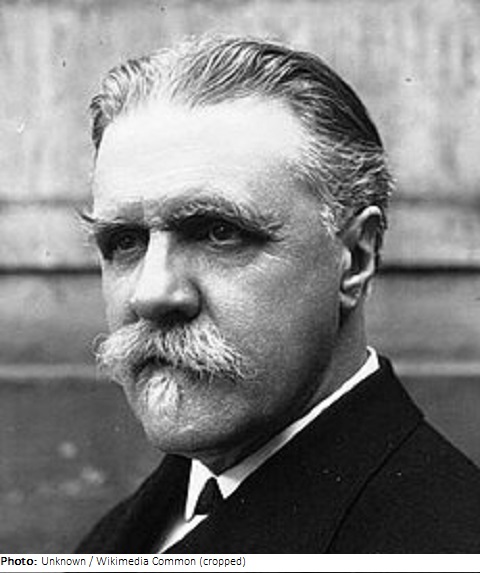
| Roles | Referee |
|---|---|
| Sex | Male |
| Full name | Paul Marie Théodore Vincent•d'Indy |
| Used name | Vincent•d'Indy |
| Born | 27 March 1851 in Paris, Paris (FRA) |
| Died | 2 December 1931 (aged 80 years 8 months 6 days) in Paris VIIe, Paris (FRA) |
| Title(s) | Comte (Count) d'Indy |
| NOC |  France France |
Since his mother died at birth, Vincent d’Indy was raised by his grandmother, the severe but cultivated Countess Thérèse “Rezia” d’Indy (1795-1872). From 1862-65, Vincent studied piano and harmony. He then spent much time studying the great composers and started composing himself.
During the Franco-Prussian War, d’Indy served in the Garde Mobile and described his war experiences in a book. In 1972, he began studying composition with César Franck (1822-1890) at the Paris Conservatory. On his first visit to Germany in 1873, he met Liszt, Wagner, and Brahms. He then became a regular member of the audience at performances of Wagner’s operas in Bayreuth.
In the years that followed, d’Indy worked as an organist and choir director. From 1876, he was secretary of the Société Nationale de Musique and in 1890 succeeded Franck as president. In 1894, he and others founded the private music college “Schola Cantorum”, which developed into one of the leading music schools in the world. D’Indy headed it as director from 1900 until his death, reviving early French music.
D’Indy’s fame as a composer began in 1886 with the performance of his opera Le Chant de la cloche (The Song of the Bell), which earned him the Prize of the City of Paris, and was subsequently recognized as one of the most important French composers of his time. He also frequently appeared as a conductor, mostly of his own works. Among other places, he made concert tours to Spain (1897), Russia (1903, 1907), and the United States (1905). He declined a professorship in composition at the Paris Conservatoire, but in 1912 accepted an appointment as professor of the ensemble class. In addition, d’Indy was inspector of music instruction in Paris from 1899. He wrote numerous articles for various journals that were noted for their critical ingenuity and literary quality. In 1892 he was made a Knight of the Legion of Honor, and in 1912 an officer.
Although d’Indy covered almost every form of composition, he had a particular talent for larger instrumental forms. His style drew on Bach and Beethoven, but his deep study of Gregorian chant and early music added a rigor and often a complexity that did not always make his compositions easily accessible. He emerged as a spokesman for the opponents of modern trends and impressionism, although he used similar elements himself. Later he approached a lighter neoclassicism.
In the course of time, a chauvinistic, militaristic, and anti-Semitic attitude increased in him, which also influenced musical works such as the opera La légende de Saint Christophe and the 3rd symphony De bello gallico. Until World War I, d’Indy lived at the Château des Faugs in the Ardèche region, later moving to the Côte d’Azur.
| Games | Sport (Discipline) / Event | NOC / Team | Phase | Unit | Role | As | |
|---|---|---|---|---|---|---|---|
| 1924 Summer Olympics | Art Competitions |  FRA FRA |
Vincent d'Indy | ||||
| Music, Open (Olympic) | Final Standings | Judge |